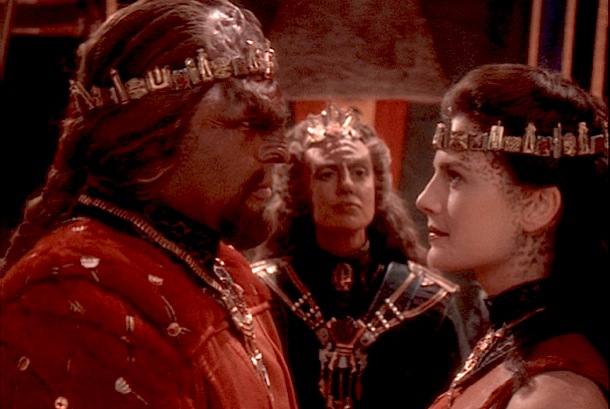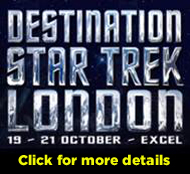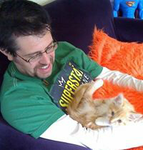Ronald D Moore Interview
The Next Generation, Deep Space Nine and Battlestar writer/producer talks to Steve O’Brien as he prepares for a trip to London
The Next Generation , Deep Space Nine and Battlestar Galactica writer/producer talks to Steve O’Brien as he prepares for a trip to London
Interview by Steve O’Brien
SFX: Are you all geared up for the convention?
“Oh yeah, I’m looking forward to it. I hadn’t actually been to a convention in a while before I did the Las Vegas one this Summer. That was fun and I enjoyed the atmosphere and the crowds, so it’s just something I thought I’d like to do this again.”
Do you tend to rewatch your episodes before going to refresh your memory along or are your memories of that time pretty crystal?
“I really don’t sit down and watch the episodes again. I watched one of my episodes on Netflix about six months ago and cringed all the way through it. I find episodes that I didn’t write easier to watch.
In terms of fandom, is there a difference between the Trek hardcore and the Galactica hardcore?
Get sneak previews, exclusive competitions and details of special events each month!
“That’s an interesting question. They’re probably more similar than they are different in that they’re all dedicated to their particular show and they know the shows better than I do. The Trek people, though, are obviously involved in a much bigger franchise; there are many more moving parts and many more series and there’s a huge canvas of things to talk about.”
You wrote a lot of Next Gen and DS9 episodes which really fleshed out the Klingon mythology. Do you feel much ownership of the Klingons from the ’80s onwards?
“I feel a great connection to them. I didn’t invent them, I just came along an embroidered what had come before me. I’m just someone in a chain of people that contributed to that myth.”

How mired in Klingon culture and mythology did you have to be? Could you ever speak any Klingon?
“Oh, the language I never even pretended to know! I could say ‘Kapla!’ because they’d said it in Star Trek III . Mark Okran’s Klingon Dictionary sat on my desk throughout my tenure and I would go to it to pick up words or phrases, but I couldn’t make head nor tails of the syntax or the grammar and I never honestly tried! Most of the time I would be writing Klingon language more on just rhythm and sound rather than actually paying attention to the rules.

You joined DS9 in season three. What did you want to bring to that series?
“I just wanted it to grow and do something different. I’d done five years on the Enterprise and the challenge of writing Star Trek in a completely different format was exciting. I’d worked with Ira [Steven Behr] on Star Trek when I first worked on Trek and it was good to work with him again. It was just an exciting opportunity to play with these different characters.
Do you miss playing with those Star Trek toys?
“Sure! The things I miss most about those days is having this connection with those characters. I don’t get to sit in a room and talk about Worf anymore or dig into Picard’s psychology or explore his relationship with Data. When you’re working on a show like that, you talk about these people so much and you get intimately involved in their entire life history, so they become very real people to you, and then suddenly they’re gone.”
Can we just talk about Virtuality . The critics seemed to love it, but it wasn’t picked up for a series. Can you ever steel yourself against decisions like that or does it always hurt like hell?
“It always hurts. You’re always bracing yourself for failure. There’s no way to really cushion the blow completely. But to work at your best, you’ve got to lead with your heart, so you’re kinda defenceless on some level.”
What are you working on at the moment?
“A lot in development – I’ve been pitching a load of different shows to different networks. I’m doing an adaptation of the Outlander novels for television, and there’s A Knight’s Tale that I’m working on. Plus there are various other projects at various stages of development.”
Showrunners on genre show tend to put in a lot more public appearances than your contemporaries on non-fantasy dramas. Do you mind that Comic Con-like aspect to your job?
“I enjoy it. I’ve been away from it for a while, but I always really like it. It’s a unique thing for a writer to stand on a stage and have a whole audience of people know what you do and know your work. It’s great to be in a genre that allows you that kind of interaction with an audience.”
• Star Trek ’s John de Lancie Interviewed
• More Captains Added To Destination Star Trek London
• Walter Koenig Interview

Dave is a TV and film journalist who specializes in the science fiction and fantasy genres. He's written books about film posters and post-apocalypses, alongside writing for SFX Magazine for many years.


